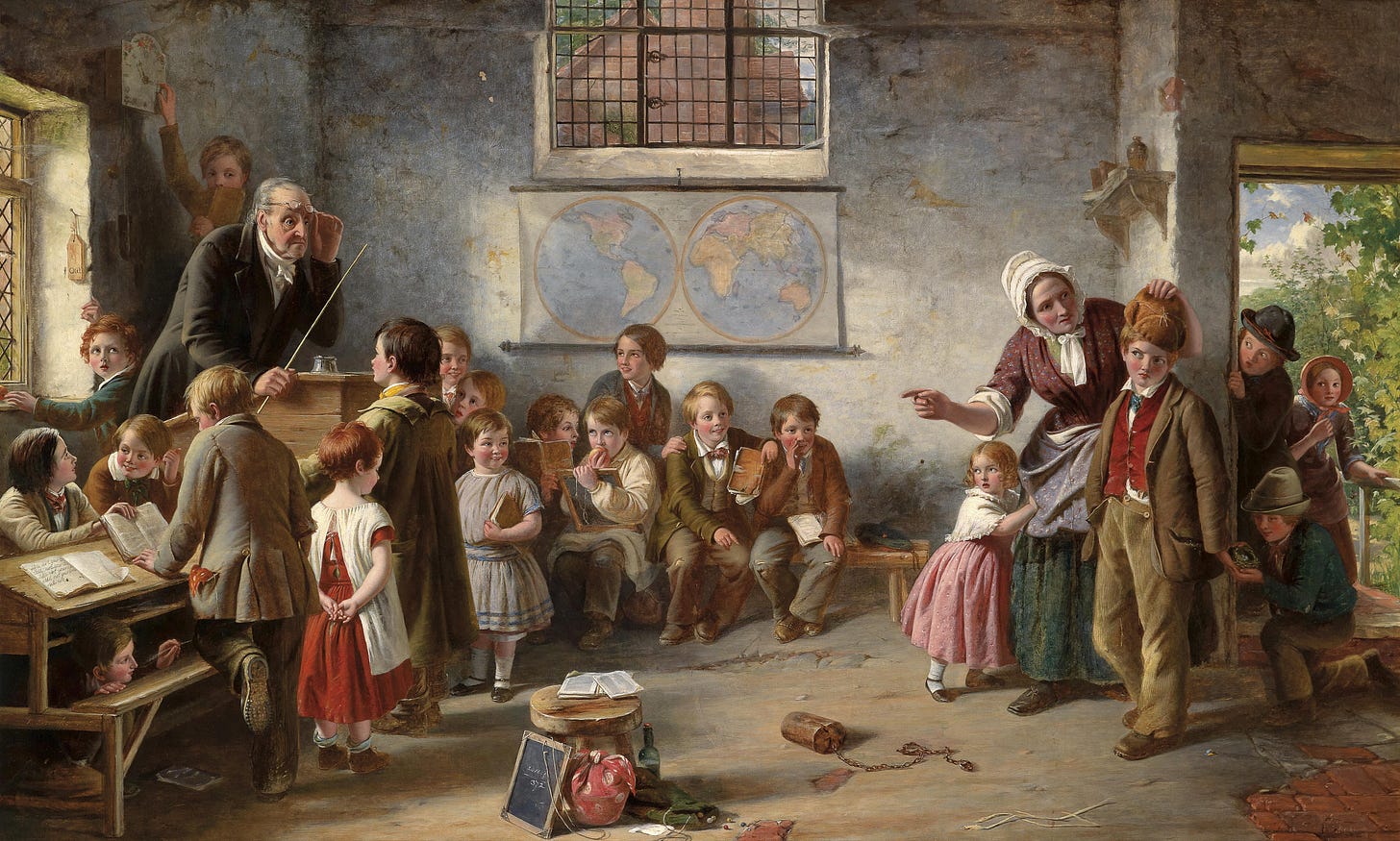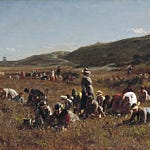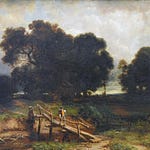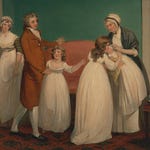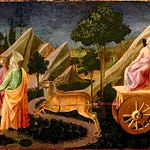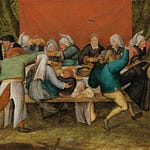It’s Time for Our Back to School Special.
From now through Labor Day,
we’re offering a year’s subscription at half price
on all upgrades and on gifts.
If you know a college student who is entering or returning to the trenches of higher education, why not sign them up for a year of Word & Song?
We’re admittedly old fashioned here! But we believe that now more than ever, college students—all young people—need daily doses of
the good, the beautiful, and the true.
Sounding in moral virtue was his speech,
And gladly would he learn and gladly teach.
With hardly a tweak, that’s the last couplet of Chaucer’s description of the Clerk of Oxford in the prologue of The Canterbury Tales. “I never heard of it!” grouches Laura’s obnoxious uncle in a great episode of The Dick Van Dyke Show, when Rob, who’s suffering a very high fever but doesn’t let on, gets Laura to guess the name of that book in a game of charades, by “cantering” like a horse and “burying” like a gravedigger, before he collapses on the floor. “Let’s get out of here!” cries the uncle, when it’s revealed that Rob’s got a fever. Nobody likes that uncle, but, as they say, “Some people never learn.”
Teach is our Word of the Week, as we anticipate the new school year up here in the northern hemisphere, though I’ve heard that a lot of kids, poor souls, have already gone back to school. I don’t approve of short summer vacations. When are children ever going to have the chance to learn things, if they’re in school all the time? I’m only half in jest here. I learned little enough in school. But out of school, in the days when you spent your summer outdoors with other kids, you learned how to invent your own games, or how to adapt a game to the field you had, the equipment, the number of players (how many; odd or even), whether it was boys with some girls or only boys, and so on. You also had to learn how to resolve the disputes that might arise (safe? out?), how to keep order, and when it was fair to end the game. Then too there was the whole natural world open to you, and much of the man-made world also, without surveillance cameras or suspicious eyes.
Yet for all that, I always knew I was born to be a teacher. So did Debra. The heart of the teacher seems to be captured by Chaucer’s last line above. We take delight in learning things, and we delight in showing them to others. I’ve never had any desire to meddle with the particular consciences of the students I taught in my college classes, much less their politics. It’s not that I think that the formation of conscience is separate from education. It can’t be, not if the education is really human. But I let Shakespeare do his educative work. I let Scripture speak out loud and clear. Milton could show them what a subtle and serpentine liar looks like. Dickens could parade before them a crowd of the self-deceived, from all social classes. My primary job was to introduce my students to great and good works of literature, along with plenty of philosophy, theology, and art. I don’t think of it as restrained — far from it! But I wanted nothing to get in the way of my reaching as many young people as I could, trying to light in them the fire of love and wonder. I was like a boy, calling out, “Hey, come here, look what I’ve found!” Imagine a tour guide who really knows what he’s talking about, spending several days with you on that Athenian height called the Acropolis, and your losing yourself in fascination. And sure enough, the original meaning of teach is to show.
Of course, the teacher in the fullest sense will be a light for the whole human being. There Chaucer’s Clerk can also be our model. He doesn’t delight in expensive clothes or fleshly pleasures. He wants books more than anything else, and in those days before the printing press, books had all to be crafted by hand, so they were quite expensive. The Clerk would rather have twenty books of Aristotle — perhaps the Clerk was a follower of Thomas Aquinas? — at the head of his bed, than a fiddle or fancy duds. He doesn’t have the money for them, so he relies on his friends to defray the cost of his education, and in return he prays most earnestly and assiduously for their souls. True to the saying that God gave us one mouth but two ears, so that we ought to do twice as much listening as speaking, the Clerk utters not one more word than is necessary, and thus he follows the counsel of Jesus, against speaking with vanity. It gratifies me to say that I had several such professors of literature at Princeton — indeed, in those days, not a bad one in the bunch.
The word teach comes from Old English taecan, pronounced TEH-chahn, meaning to indicate, to demonstrate, to show. The more common word in Old English for teaching was laeran, as in German lehren and the English noun lore. You could also use learn in Middle English and most of our centuries of Modern English to mean teach, as in the roughneck expression, “I’ll learn ya!” The verb was a causative built from a lost noun *tac, related to tacn, sign — modern English token. The Indo-European root of teach shows up in Latin, in all those words having to do with speaking: dicere, to say, and all its many compounds, such as interdicere, to speak between, that is, to keep one thing apart from another by speaking; to forbid. It shows up in Greek, most notably in the noun dikē, moral custom, hence dikaiosyne, justice. It’s in German Zeichen, sign, but also a wonder, as in the Biblical phrase “signs and wonders.” And if we aren’t taught by wonders, what will teach us?
“You can’t teach an old dog new tricks,” the saying goes, but we can assure you that our dog Jasper of happy memory continued to learn new tricks all his life, about 75 of them in all. For you’re never too old to learn. Think it’s too late for you to open that book you’ve been aiming to read, all these years? Never too late. Otherwise, what hope could we have?
Listen to this episode with a 7-day free trial
Subscribe to Word & Song by Anthony Esolen to listen to this post and get 7 days of free access to the full post archives.



